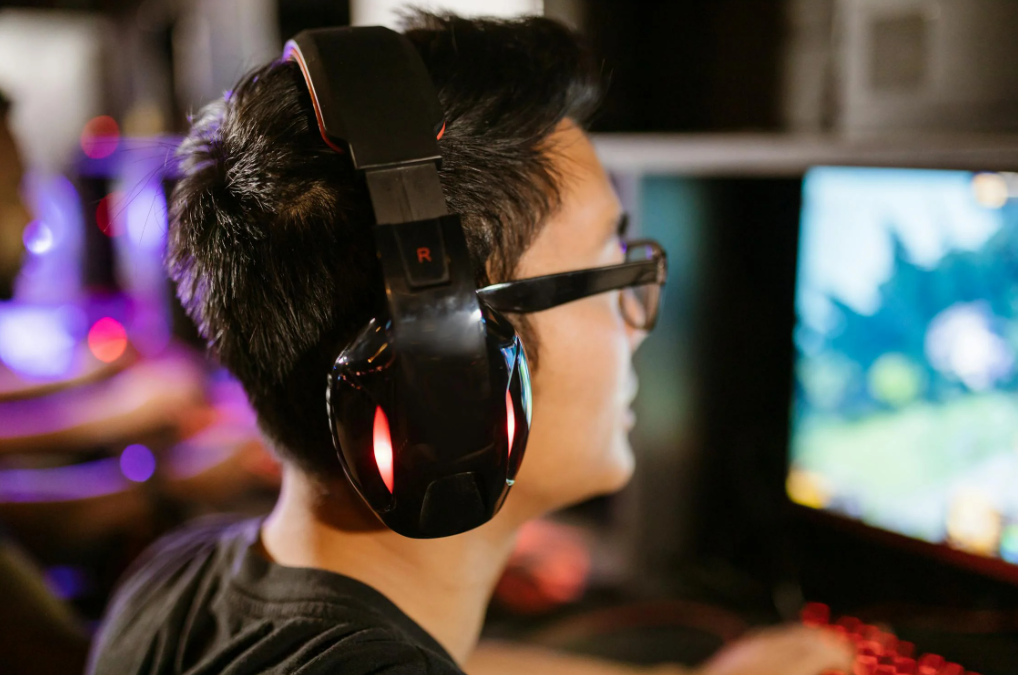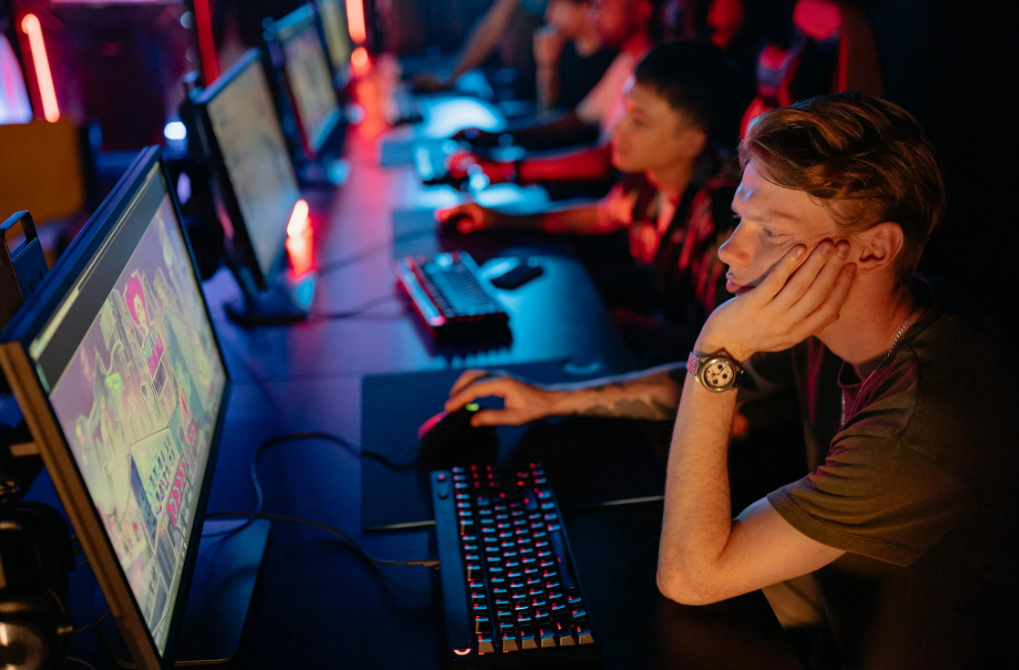Respawn and Retry: RevenueLab’s Take on What Gaming Teaches About Resilience in Any Challenge
wp:paragraph
Defeat happens constantly in gaming. The scoreboard often shows more losses than wins. Yet, players return to the same challenge, armed with what was learned in the last run.
/wp:paragraph
wp:paragraph
This habit is not blind optimism. Gamers know persistence can win battles that raw skill alone cannot. That mindset holds value far beyond the screen.
/wp:paragraph
wp:image {“id”:26058,”width”:”700px”,”sizeSlug”:”full”,”linkDestination”:”none”,”align”:”center”}

/wp:image
wp:paragraph
At RevenueLab, we see this principle play out in the iGaming and affiliate marketing world. Our network connects top-performing partners with the tools and strategies they need, but it’s the persistence and adaptability that turn opportunities into long-term results.
/wp:paragraph
wp:paragraph
In this blog, we’ll explore how the habit of respawning in games can help improve skills, adapt faster, stay consistent, and learn from mistakes in any area of life.
/wp:paragraph
wp:heading
Lesson 1: Trial-and-Error Builds Mastery
/wp:heading
wp:paragraph
In games, trial-and-error is not guesswork. Each failed run produces data such as enemy patterns, timing windows, or resource costs. These details shape the next attempt until mastery replaces uncertainty. Even repeated losses are not wasted when they deliver specific information about how the game works.
/wp:paragraph
wp:paragraph
Outside of gaming, the same principle applies. A failed project can reveal mismatches between approach and objective. A rejected idea can highlight missing details that would have made it work. What looks like failure at a glance is often a feedback mechanism in disguise.
/wp:paragraph
wp:paragraph
The difference between those who improve and those who do not is in how the data from each attempt is used. Treating every outcome as a source of knowledge makes progress inevitable over time.
/wp:paragraph
wp:heading
Lesson 2: Growth Comes From the Grind
/wp:heading
wp:paragraph
In most games, every action builds toward a larger goal. Experience points accumulate whether the immediate result is a win or loss. Over hours of play, this steady gain creates a noticeable difference in ability.
/wp:paragraph
wp:paragraph
Real-world skill growth follows the same pattern, though the progress bar is invisible. Each attempt to solve a problem or develop a skill adds a small increment of improvement. The change is often so gradual that it is only noticed when comparing current ability to a much earlier stage.
/wp:paragraph
wp:paragraph
Gamers are familiar with this concept because they have seen firsthand how repeated effort transforms a novice into a master over time. Outside of games, adopting the same mindset means recognizing that consistent effort compounds into capabilities that cannot be built overnight.
/wp:paragraph
wp:image {“id”:26057,”width”:”700px”,”sizeSlug”:”full”,”linkDestination”:”none”,”align”:”center”}

/wp:image
wp:heading
Lesson 3: Tools Alone Don’t Guarantee Wins
/wp:heading
wp:paragraph
Legendary gear changes the odds but not the outcome if the player cannot use it effectively. A high-powered weapon in inexperienced hands often leads to the same result as a basic one. Mastery of core mechanics comes first.
/wp:paragraph
wp:paragraph
The same is true for tools in non-gaming environments. Advanced software, expensive equipment, or specialized resources can amplify results, but only when paired with the knowledge to use them strategically. Without skill, they remain underutilized.
/wp:paragraph
wp:paragraph
For example, on some of the best casino affiliate sites, success depends on the user’s ability to interpret data and adapt strategy, not simply on having an account.
/wp:paragraph
wp:heading
Lesson 4: Adaptability Is Survival
/wp:heading
wp:paragraph
Games are rarely static. Updates shift balance, change mechanics, or introduce entirely new challenges. Competitive players quickly learn that staying effective requires rapid adjustment. Strategies that worked last week may not work today.
/wp:paragraph
wp:paragraph
Adaptability is not about abandoning what works at the first sign of trouble. It is about being willing to make informed changes when conditions demand them. Gamers who thrive under shifting circumstances already have this skill in place.
/wp:paragraph
wp:heading
Lesson 5: Consistency Outweighs Perfection
/wp:heading
wp:paragraph
Victory in challenging games is rarely the result of a flawless single run. It is more often the product of dozens or even hundreds of attempts, each one slightly better than the last. The path to success is paved with incremental improvement rather than sudden perfection.
/wp:paragraph
wp:paragraph
In other settings, consistent effort produces the same effect. Regular practice, steady output, and ongoing review create competence over time. Waiting for the perfect moment or the perfect plan often leads to inactivity, while consistent action builds real results.
/wp:paragraph
wp:paragraph
Gamers know that one brilliant performance means little if it cannot be repeated. In life, as in games, the ability to deliver solid results again and again matters more than a rare peak performance.
/wp:paragraph
wp:heading
Lesson 6: Loss Is a Teacher
/wp:heading
wp:paragraph
Experienced gamers expect to lose. They enter challenges knowing that the first few attempts may be more about observation than winning. Losses reveal weaknesses, show the strengths of opponents, and expose gaps in strategy.
/wp:paragraph
wp:image {“id”:26056,”width”:”700px”,”sizeSlug”:”full”,”linkDestination”:”none”,”align”:”center”}

/wp:image
wp:paragraph
Approaching failure this way removes the fear from it. Loss becomes a form of feedback rather than a reason to give up. Each defeat carries clues about what to change next time. Over time, this cycle of loss, learning, and adjustment builds resilience.
/wp:paragraph
wp:paragraph
The same process applies in any area where performance matters. Treating setbacks as lessons instead of final judgments keeps progress moving forward.
/wp:paragraph
wp:heading
Lesson 7: Progress Is the Real Endgame
/wp:heading
wp:paragraph
Games have final bosses and end credits, but many players keep going after they appear. They chase higher scores, faster completion times, or alternative strategies. The satisfaction comes from seeing how much better they can perform, not just from reaching the end once.
/wp:paragraph
wp:paragraph
The same outlook works outside of games. Progress is an ongoing process, not a single milestone. The value lies in becoming more capable, not in one perfect moment of achievement. The respawn mindset makes improvement an active pursuit, turning mistakes into stepping stones toward greater skill.
/wp:paragraph
wp:heading
Respawn Beyond the Screen
/wp:heading
wp:paragraph
Persistence, adaptability, and structured learning are skills honed naturally through gaming. These qualities transfer directly to other challenges. They shape how problems are approached, how setbacks are handled, and how improvement is sustained over time.
/wp:paragraph
wp:paragraph
At RevenueLab, we’ve seen partners apply this same mindset to optimize campaigns: testing, tweaking, and improving over time. Just as a gamer studies a level to find the best path forward, successful affiliates use data and insights to adjust strategies, refine targeting, and unlock better performance.
/wp:paragraph
wp:paragraph
Gamers already know the rhythm of returning to a challenge with more insight than before. Whether tackling a demanding game level, developing a personal skill, or working through complex systems, the cycle remains the same. Attempt, learn, adjust, repeat.
/wp:paragraph
wp:paragraph
Every attempt adds to ability. Every loss reveals new information. Every retry is a step closer to the result that once felt out of reach.
/wp:paragraph
wp:paragraph
Want to get more tips, strategies, and winning moves? Follow RevenueLab online, your trusted iGaming partner, today.
/wp:paragraph
wp:heading
About the Author
/wp:heading
wp:image {“id”:26055,”width”:”700px”,”sizeSlug”:”full”,”linkDestination”:”none”,”align”:”center”}

/wp:image
wp:paragraph
A lifelong gamer, Riley Drake explores the skills built through play and how they can be used to overcome challenges off the screen.
/wp:paragraph





